British blues is a form of music derived from American blues that originated in the late 1950s, and reached its height of mainstream popularity in the 1960s. In Britain, blues developed a distinctive and influential style dominated by electric guitar, and made international stars of several proponents of the genre, including the Rolling Stones, the Animals, the Yardbirds, Eric Clapton, Fleetwood Mac and Led Zeppelin.
Mississippi is best known as the home of the blues which developed among the freed African Americans in the latter half of the 19th century and beginning 20th century. The Delta blues is the style most closely associated with the state, and includes performers like Charley Patton, Robert Johnson, David "Honeyboy" Edwards, Willie Brown, Tommy Johnson, Ishmon Bracey, Bo Carter, Sam Chatmon, Mississippi John Hurt, Furry Lewis, Son House, Skip James, Muddy Waters, Howlin' Wolf, John Lee Hooker, Pinetop Perkins, Albert King and B.B. King.

John Renbourn was an English guitarist and songwriter. He was best known for his collaboration with guitarist Bert Jansch as well as his work with the folk group Pentangle, although he maintained a solo career before, during and after that band's existence (1967–1973). Several albums were credited to the John Renbourn Group. He worked later in a duo with Stefan Grossman.

Fingerstyle guitar is the technique of playing the guitar or bass guitar by plucking the strings directly with the fingertips, fingernails, or picks attached to fingers, as opposed to flatpicking. The term "fingerstyle" is something of a misnomer, since it is present in several different genres and styles of music—but mostly, because it involves a completely different technique, not just a "style" of playing, especially for the guitarist's picking/plucking hand. The term is often used synonymously with fingerpicking except in classical guitar circles, although fingerpicking can also refer to a specific tradition of folk, blues and country guitar playing in the US. The terms "fingerstyle" and "fingerpicking" are also applied to similar string instruments such as the banjo.
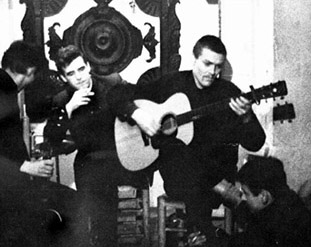
David Michael Gordon "Davey" Graham was a British guitarist and one of the most influential figures in the 1960s British folk revival. He inspired many famous practitioners of the fingerstyle acoustic guitar such as Bert Jansch, Wizz Jones, John Renbourn, Martin Carthy, John Martyn, Paul Simon and Jimmy Page, who based his solo "White Summer" on Graham's "She Moved Through the Fair". Graham is probably best known for his acoustic instrumental "Anji" and for popularizing DADGAD tuning, later widely adopted by acoustic guitarists.
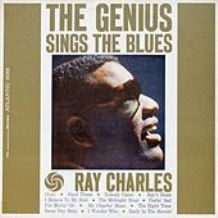
The Genius Sings the Blues is an album by Ray Charles, released in October 1961 on Atlantic Records. The album was his last release for Atlantic, compiling twelve blues songs from various sessions during his tenure for the label. The album showcases Charles's stylistic development with a combination of piano blues, jazz, and southern R&B. The photo for the album cover was taken by renowned photographer Lee Friedlander. The Genius Sings the Blues was reissued in 2003 by Rhino Entertainment with liner notes by Billy Taylor.

No Dirty Names is a 1966 album by artist Dave Van Ronk. It features the first recorded version of Bob Dylan's song "The Old Man".
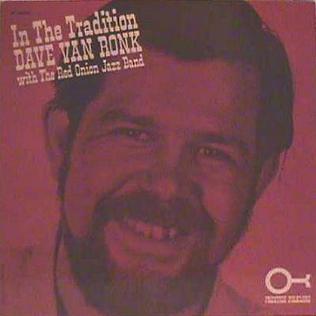
In the Tradition is a 1963 album by American folksinger Dave Van Ronk and The Red Onion Jazz Band. It is unusual in that the tracks are evenly split between Van Ronk and the Red Onions.

Folk, Blues and Beyond is the second studio album by British musician Davy Graham, originally released in 1965. It has been considered Graham's most groundbreaking and consistent work and a defining record of the 20th century. It has also been a primary influence on some of the most popular musicians in Britain ranging from Bert Jansch to Jimmy Page and Eric Clapton.
Folk baroque or baroque guitar is a distinctive and influential guitar fingerstyle developed in Britain in the 1960s, which combined elements of American folk, blues, jazz and ragtime with British folk music to produce a new and elaborate form of accompaniment. It has been highly important in folk music, folk rock and British folk rock playing, particularly in Britain, Ireland, North America and France.
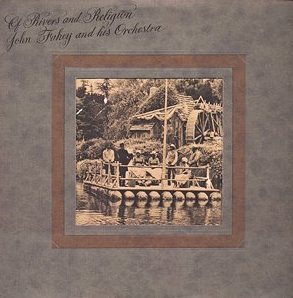
Of Rivers and Religion is an album by American folk musician John Fahey, released in 1972. It was his first recording on a major label and is credited to John Fahey and His Orchestra. It marked a significant change from Fahey's previous releases, incorporating a backing band and performing songs and arrangements in a Dixieland jazz style. Although Time picked it as one of the Top Ten albums of 1972, it was also a difficult album to market and had little enthusiasm at Reprise.
British rhythm and blues was a musical movement that developed in the United Kingdom between the late 1950s and the early 1960s, and reached a peak in the mid-1960s. It overlapped with, but was distinct from, the broader British beat and more purist British blues scenes, attempting to emulate the music of American blues and rock and roll pioneers, such as Muddy Waters and Howlin' Wolf, Chuck Berry and Bo Diddley. It often placed greater emphasis on guitars and was often played with greater energy.

Large as Life and Twice as Natural is an album by British musician Davey Graham, released in 1968.

Holly Kaleidoscope is an album by British musician Davy Graham, released in 1970. His wife at the time, Holly Gwyn, contributes on vocals.

Godington Boundry is an album by British musician Davy Graham, released in 1970. It is credited to "Davy Graham & Holly".
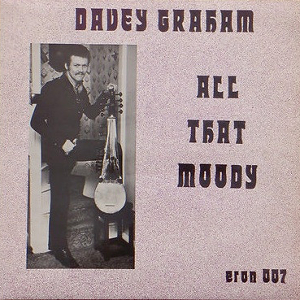
All That Moody is an album by British musician Davey Graham, released in 1976. It was his first album in six years after the release of Godington Boundary and is the first with his name spelled Davey instead of Davy. It was released on an imprint called Eron Enterprises, a small label based in Deal, Kent, set up 4 years previously to demonstrate how good South East England's folk music scene was. Graham had known Ron Milner, the label's boss, since Holly Gwinn-Graham had been on the label's first release, Folk In Sandwich.
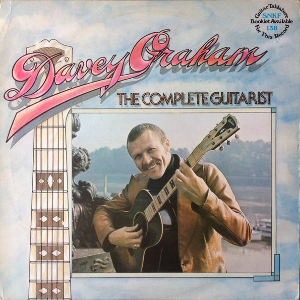
The Complete Guitarist is a compilation album by British musician Davey Graham, released in 1978. It was reissued on CD in 1999 with eight bonus tracks from 1979-1980 added.

The Guitar Player is an album by British guitarist Davey Graham, released in 1963. It was his first LP after releasing the EP 3/4 A.D. one years earlier. The session-musician Bobby Graham plays drums on the album.
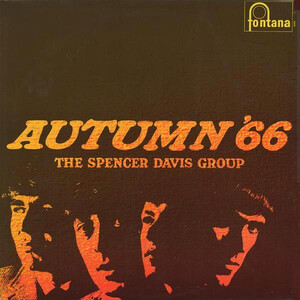
Autumn' 66 is the third studio album by the British rock group the Spencer Davis Group released in 1966. Although the album was not released in the US, the single "Somebody Help Me" was on the US Billboard Hot 100 charts for seven weeks and peaked at number 47 in July, 1967.

The Sound of 65 is the debut album by rhythm & blues/jazz group The Graham Bond Organisation, featuring its best-known line-up of Graham Bond, Jack Bruce, Dick Heckstall-Smith and Ginger Baker (drums).
















